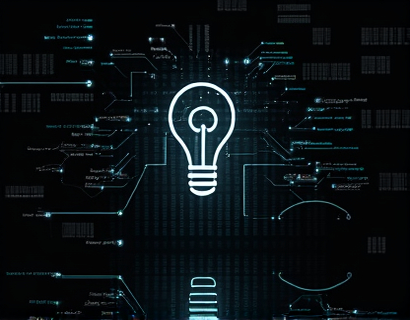Blockchain-Powered Compliance: Streamlining Governance with Secure and Transparent Enforcement Solutions
In an era where regulatory adherence is paramount, organizations are increasingly seeking innovative compliance solutions to streamline governance and ensure trust. Blockchain technology emerges as a transformative force, offering secure and transparent enforcement of rules and regulations. This article delves into how blockchain-driven solutions can revolutionize compliance strategies, enhancing accountability and fostering integrity in every transaction.
The traditional compliance landscape is often marred by inefficiencies, lack of transparency, and high operational costs. Manual processes and centralized systems create bottlenecks and vulnerabilities, making it challenging for organizations to maintain regulatory adherence. Blockchain technology addresses these challenges by providing a decentralized, immutable, and transparent ledger that can significantly enhance the compliance process.
Understanding Blockchain in Compliance
At its core, blockchain is a distributed ledger technology that records transactions across multiple computers in such a way that the registered transactions cannot be altered retroactively. This inherent characteristic ensures data integrity and security, making it an ideal solution for compliance purposes.
Blockchain's decentralized nature eliminates the need for intermediaries, reducing the risk of single points of failure and enhancing data privacy. Each transaction is verified by a network of nodes, ensuring that only valid transactions are recorded. This consensus mechanism provides a high level of trust and reliability, crucial for compliance operations.
Enhancing Transparency and Accountability
One of the most significant benefits of blockchain in compliance is the enhancement of transparency. Every transaction on the blockchain is time-stamped and linked to the previous transaction, creating an unbreakable chain of evidence. This transparency allows regulators and stakeholders to trace the history of transactions with ease, reducing the potential for fraud and errors.
Accountability is another key area where blockchain shines. With blockchain, each participant in the network has access to the same version of the truth, ensuring that everyone is held to the same standards. This shared visibility fosters a culture of responsibility and ethical behavior, as actions can be traced back to specific entities.
Streamlining Regulatory Reporting
Regulatory reporting is a critical component of compliance, often involving complex and time-consuming processes. Blockchain can streamline these processes by automating the collection and submission of data. Smart contracts, self-executing contracts with the terms directly written into code, can be programmed to trigger reporting events based on predefined conditions.
For instance, a smart contract can automatically detect when a certain threshold is met, such as a financial limit or a compliance milestone, and trigger the necessary reporting to regulatory bodies. This automation reduces manual errors, speeds up the reporting process, and ensures that all required information is accurately and timely submitted.
Improving Data Integrity and Security
Data integrity is fundamental to compliance, as inaccurate or tampered data can lead to severe consequences. Blockchain's immutable nature ensures that once data is recorded, it cannot be altered without detection. This feature is particularly valuable in industries where data accuracy is critical, such as finance, healthcare, and supply chain management.
Security is another area where blockchain excels. The cryptographic techniques used in blockchain make it extremely difficult for unauthorized parties to access or manipulate data. This robust security framework helps organizations meet stringent regulatory requirements related to data protection and privacy.
Reducing Operational Costs
The traditional compliance infrastructure often incurs high operational costs due to the need for extensive manual processes and multiple intermediaries. Blockchain can significantly reduce these costs by automating many of these processes. For example, the use of smart contracts eliminates the need for manual verification and intermediaries, leading to cost savings and increased efficiency.
Additionally, blockchain can reduce the need for extensive audits and compliance checks by providing a real-time, verifiable record of transactions. This continuous monitoring reduces the workload on compliance teams and minimizes the risk of undetected issues.
Case Studies and Real-World Applications
Several organizations have already begun to leverage blockchain for compliance purposes, achieving notable success. In the finance sector, banks are using blockchain to enhance Know Your Customer (KYC) processes and anti-money laundering (AML) compliance. By storing customer identification and transaction data on a blockchain, banks can quickly verify identities and detect suspicious activities.
In the supply chain industry, companies are using blockchain to ensure product authenticity and traceability. For example, a food company can use blockchain to track the journey of a product from farm to store, ensuring compliance with food safety regulations and building consumer trust.
Another notable application is in the insurance industry, where blockchain is used to streamline claims processing. Smart contracts can automate the claims process, ensuring that all conditions are met before payouts are made, reducing fraud and speeding up the resolution process.
Challenges and Considerations
While the benefits of blockchain in compliance are clear, there are several challenges and considerations that organizations must address. One of the primary challenges is the technical complexity of blockchain technology, which requires specialized knowledge and expertise to implement effectively.
Scalability is another concern, as some blockchain networks may struggle to handle a high volume of transactions. However, ongoing developments in blockchain technology, such as layer 2 solutions and sharding, are addressing these scalability issues.
Regulatory uncertainty also poses a challenge, as the legal framework for blockchain is still evolving. Organizations must stay informed about regulatory changes and ensure their blockchain implementations comply with current and future regulations.
Future Trends and Innovations
The integration of blockchain with other emerging technologies, such as artificial intelligence (AI) and the Internet of Things (IoT), is set to further enhance compliance solutions. AI can be used to analyze blockchain data in real-time, identifying patterns and anomalies that may indicate compliance issues. IoT devices can provide real-time data feeds to the blockchain, ensuring that compliance is maintained throughout the entire lifecycle of a product or transaction.
Moreover, the development of interoperable blockchain platforms will facilitate seamless data sharing and collaboration across different organizations and industries, further enhancing the effectiveness of compliance efforts.
Conclusion
Blockchain-powered compliance solutions offer a transformative approach to governance, ensuring secure and transparent enforcement of rules and regulations. By leveraging the unique properties of blockchain, organizations can streamline their compliance processes, reduce costs, and build trust with stakeholders. As the technology continues to evolve, the potential for blockchain in compliance will only grow, making it an essential tool for organizations dedicated to regulatory adherence and integrity.










































